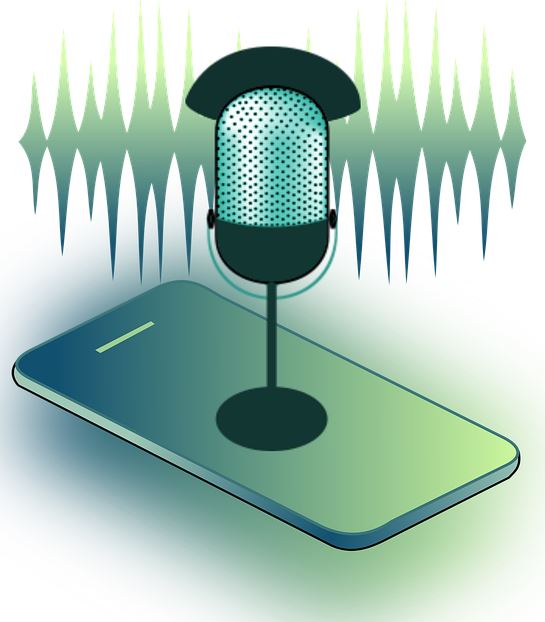From its humble beginnings at the 1962 Seattle World’s Fair, when IBM debuted Shoebox, a tool that could recognize 16 words and 10 digits (0-9), to Apple’s Siri, Amazon’s Echo, Microsoft’s Cortana, and Google’s Google Assistant, voice assistance technology has made a huge impact on the way people and businesses communicate and complete tasks.
 eMarketer estimates that in 2019, 111.8 million people in the United States alone will use a voice assistant at least on a monthly basis — 33.8% of the total U.S. population. Because these tools benefit a wide range of industries, organizations are increasingly looking to hire software developers to incorporate the technology into connected devices, from cars to kitchen appliances.
eMarketer estimates that in 2019, 111.8 million people in the United States alone will use a voice assistant at least on a monthly basis — 33.8% of the total U.S. population. Because these tools benefit a wide range of industries, organizations are increasingly looking to hire software developers to incorporate the technology into connected devices, from cars to kitchen appliances.
Benefits of voice assistance technology
• Range of processes
Different devices offer different benefits — and some assist with multiple voice-related tasks. For example, Evernote converts speech to text, meaning users can dictate notes and watch the text appear on their screens. Echo and its peers, meanwhile respond to the sound of your voice and carry out tasks, from playing a favorite song to answering a probing question, according to your commands through voice control and speech recognition.
Businesses who want to hire development teams to incorporate voice assistants into their products or develop new ones should consider how the technology can benefit the service and the user. An automobile company, for instance, might want drivers to be able to power and operate certain features, including turning the vehicle on or off, through voice commands.
• Cross-industry applicability
The tech giants have made their mark with Siri and the like, but voice assistants can actually benefit a wide range of industries, not just tech. Gaming offers games with voice-activated features. Writers use speech-to-text functions to convert oral notes to written ones. Fintech incorporates the technology for user authentication and protection. Retailers make the shopping experience easy by enabling customers to simply say what they’d like to order.
These are just a few of the industries that hire software developers to improve their products and services through voice assistance technology. Healthcare, education, government, forensic science…nearly any industry could benefit from the software. In healthcare, for instance, physicians could use the technology to dictate notes, while in education, students can ask voice assistants for the answers to questions.
• Productivity
According to a study by Gartner, in 2021, voice assistance technology will substantially improve employee productivity — saving 6.2 billion hours of employee’s time. This is because they can deliver information quickly, solve problems — literally, they can perform mathematical equations — increase accuracy for a range of issues, and generally help employees achieve better results more quickly and efficiently.
• Organization
Voice assistants offer numerous organizational features to help users, such as scheduling appointments and creating calendar events, sending emails and text messages, managing other applications, and more. Siri, of course, started essentially as a voice-activated personal assistant — although her capabilities have expanded considerably since her initial debut in 2011.
This technology can help businesses and their employees stay on top of important tasks, send messages quickly, and generally improve their organizational habits overall.
• Brand loyalty
For businesses looking to hire development teams to build new products or improve existing ones, voice assistants can help establish trust and value in the brand. For example, someone who purchases an Echo is likely to turn to Amazon for her microwave, timer, vacuuming, and webcam needs — since Amazon offers these devices, all powered by Alexa.
Caveats, concerns, and the future of voice assistance
Clearly, voice assistants are no longer the futuristic technology of the 2013 film Her. They’re a very present part of everyday society, and businesses across numerous industries are looking to hire software developers to bring them into the fold and leverage the technology. The way customers interact with services and products is rapidly changing — and all industries must keep up with the times.
At the same time, businesses must be aware of the concerns consumers have regarding voice assistants. Through their research, PricewaterhouseCoopers found that 90% of survey respondents were familiar with voice assistants and 72% had used one at some point. That’s good news. The bad news is that many people articulated a lack of understanding about the devices and their capabilities, difficulty trusting them to facilitate important tasks that require security, and a failure to comprehend the value of the technology.
For example, with regard to using voice assistance technology for retail purposes, one in four consumers said that would not consider using their devices to shop, with some saying that they fear the assistant would not understand or correctly process their order and others expressing concerns about submitting payment through the device.
Voice assistants have plenty of benefits for both consumers and businesses — improving efficiency and promoting productivity and brand loyalty, to name a few — but as organizations hire software developers and work with them to create their products, they must be aware of the concerns surrounding the technology and find ways to mitigate them. If they do, they have the capacity to greatly improve people’s lives.

